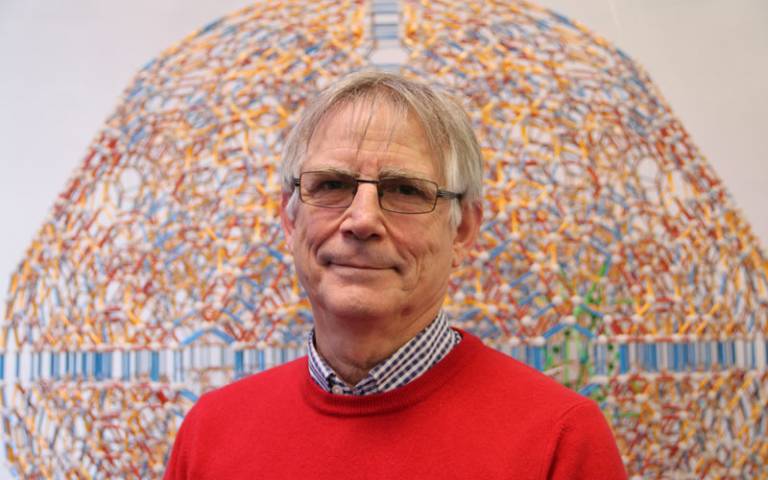Spotlight on Professor Martin Mills
13 March 2019
Professor Martin Mills is the inaugural Director of the Centre for Teachers and Teaching Research (CTTR) in the Institute of Education (IOE).

What is your role and what does it involve?
I am the inaugural Director of the Centre for Teachers and Teaching Research (CTTR) in the Institute of Education (IOE). The mission of the centre is to develop and conduct research projects that: enhance the status and conditions of teachers’ work, contributing to workforce recruitment and retention; identify curricular, pedagogical and assessment practices that contribute to high quality educational experiences for all students; and address the educational needs of pre-service and practising teachers in the context of changing policy, curricular and societal expectations. My role is to co-ordinate and initiate activities with my colleagues in the CTTR, to liaise and collaborate with other colleagues in the IOE and UCL and with those in external organisations who share similar ambitions to those within the centre. One of the great joys of having moved to UCL has been the number of wonderful graduate students that I am now working with.
How long have you been at UCL and what was your previous role?
I started at UCL on the 1 January 2018. I was previously the Head of the School of Education, at The University of Queensland, Australia.
What working achievement or initiative are you most proud of?
Apart from becoming the Director of the Centre for Teachers and Teaching research (CTTR)? My work has always been underpinned by a commitment to social justice – I am pleased that I have, I think, always managed to integrate that commitment into my research and general academic life. For example, as a former President of the Australian Association of Research in Education (AARE), I am proud of working with subsequent presidents and members of the Aboriginal and Torres Strait Islander education research community in Australia to create a Statement of Reconciliation on behalf of AARE. That statement acknowledged and apologised for the harm done by and advantages gained by non-Indigenous educational researchers at the expense of Aboriginal and Torres Strait Islander communities. It also committed to ensuring an on-going support by the association for ethical and culturally sensitive research and supporting Aboriginal and Torres Strait Islander educational researchers. In the context of Australian politics in and outside of the academy that was an important statement for the educational research community to make.
Tell us about a project you are working on now which is top of your to-do list
There is without a doubt a crisis in England, as in many locations, in relation to the attraction of people into teaching and of retaining them in the profession once there. We are currently undertaking a project that explores what senior leaders are doing to make their workplaces supportive of all staff, especially in communities with high levels of poverty. The project is shaped by an understanding that the professionalism of teachers needs to be recognised and valued, that young people in all communities are deserving of high-quality teaching and that addressing this issue may require a rethinking of what it means to be a teacher in today’s schools. As part of this strand of work, one of the researchers in the Centre has just been awarded funding from the British Academy to investigate the retention of teachers from minority ethnic groups in disadvantaged schools. I am very much looking forward to working on that project.
What is your favourite album, film and novel?
It’s always hard to pick a favourite album – it was a toss-up between Billy Bragg’s Workers’ Playtime and Midnight Oil’s 10, 9, 8, 7, 6, 5, 4, 3, 2, 1 – I’ve come down on the latter – who would have thought that the lead singer, Peter Garrett, would become Australia’s Commonwealth Minister for School Education, Childcare and Youth (especially with his dance moves!). Film? It’s nearly always one that I have seen recently – I just saw The Bookshop on a plane – I loved that. I can’t pick a favourite novel, I love most things written by Jeanette Winterson, Julian Barnes and Isabel Allende.
What advice would you give your younger self?
Not to listen to my older self! I’ve become a bit too sensible, and it would be a shame to have missed out on some of the adventures of my youth.
What would it surprise people to know about you?
I am a bit of a fanatical runner, four years ago I ran in my first 100km ultramarathon. It might also surprise people to know that despite my Australian accent, I am British, my family was part of a programme that assisted British people to move to Australia in the 60s and 70s – we were one of the last boatloads. I am colloquially known there as a ‘£10 Pom’.
What is your favourite place?
One of my favourite places is a beach head in Brixham, Devon, where my grandmother used to live. I spent most of my school holidays there as child before moving to Australia when I was 14. I have often been back, including with my children, it has a special place in my heart.
 Close
Close

